Most see TikTok’s ties to China as a nationwide safety threat, and those that do want to see the video-sharing app banned within the U.S. However youthful individuals — who’re the almost definitely age group to make use of it — are additionally probably the most against a ban, or to the concept it’s a menace.
These views come amid bigger considerations about social media platforms normally, such because the prospect of international nations utilizing social media to control People, and in regards to the privateness threat of platforms amassing private information.
In response, there’s bipartisan help for the U.S. authorities inserting at the least some guidelines and restrictions on what social media corporations can do with their customers’ private information.
Most — whether or not they use social media or not — are involved that international nations or companies use these platforms to attempt to manipulate or affect the views of individuals within the U.S.
It isn’t simply considerations about international affect, however about private privateness, too.
About eight in 10 People who report utilizing social media are at the least considerably involved about social media corporations placing their private information in danger.
However even those that are “very involved” in regards to the privateness threat use social media every day, illustrating the sophisticated relationship People have with social media.
And the extra involved they’re, the extra authorities restrictions they need in place.
Some uncommon partisan settlement
We do not typically see partisans agreeing on a lot lately, however related majorities of Republicans and Democrats are involved about international affect on social media and their very own private information being put in danger. And each events help at the least some restrictions on the best way social media corporations deal with customers’ private information.
Relating to TikTok particularly, partisans on each side see it as a nationwide safety threat and favor banning the app within the U.S.
The place Democrats and Republicans disagree is on how individuals who run social media corporations deal with political beliefs on their platforms. Most Republicans assume these corporations favor liberal views over conservative ones, whereas Democrats are extra apt to assume these corporations do not take sides both means.
This CBS Information/YouGov survey was performed with a nationally consultant pattern of two,117 U.S. grownup residents interviewed between March 20-22, 2023. The pattern was weighted based on gender, age, race, and training primarily based on the U.S. Census American Neighborhood Survey and Present Inhabitants Survey, in addition to the 2020 presidential vote. The margin of error is ±3.2 factors.


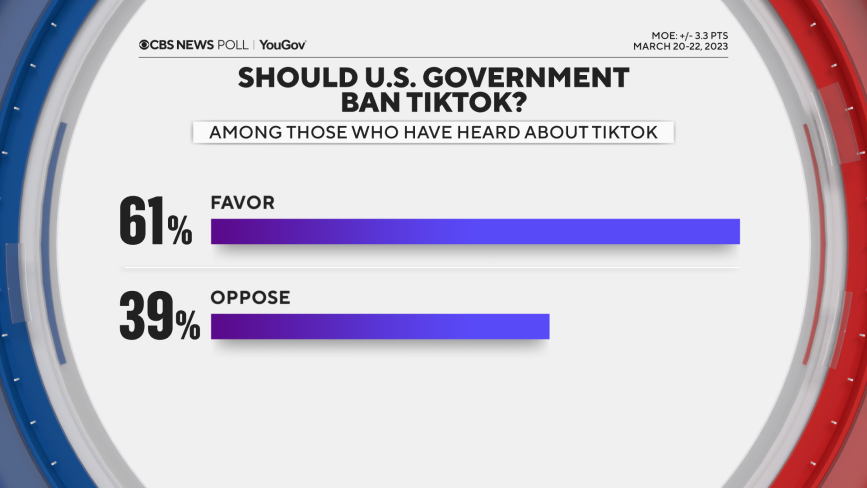
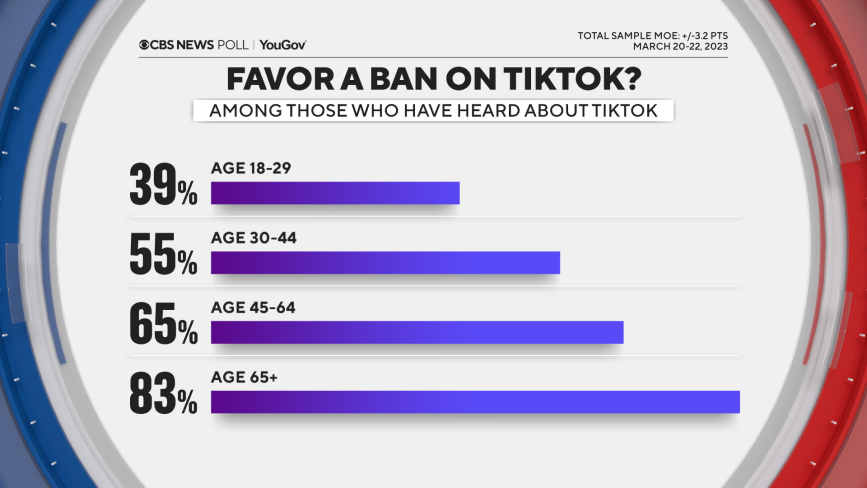
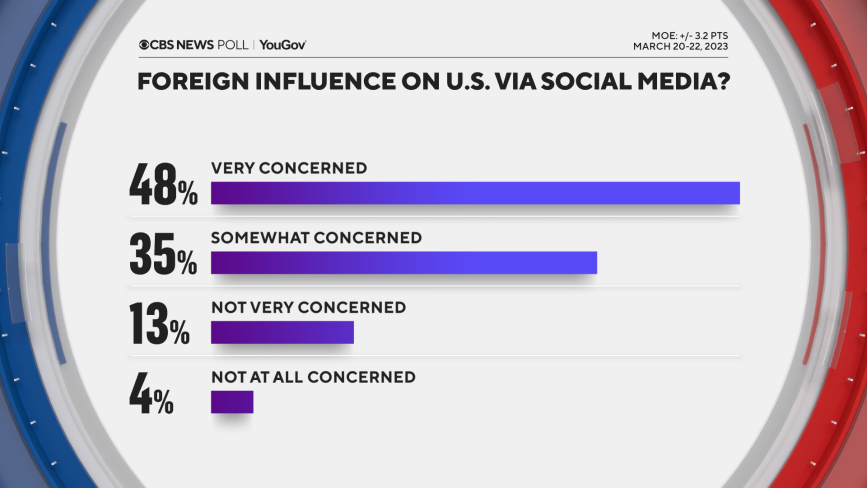
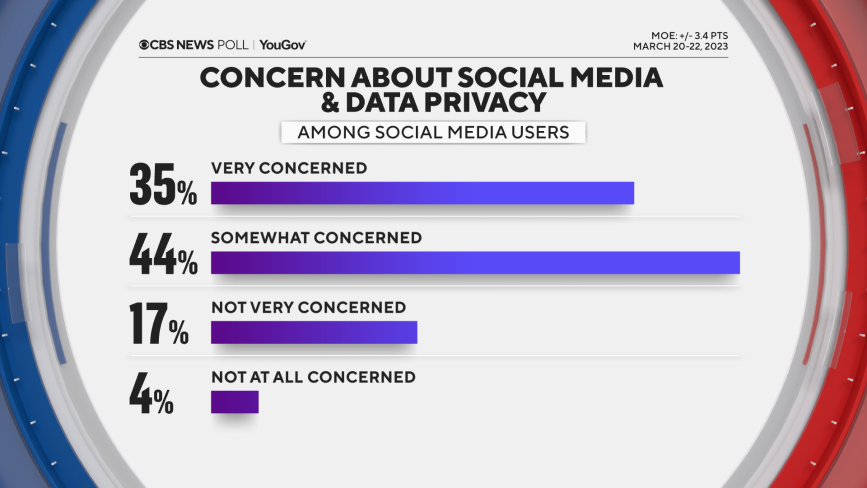
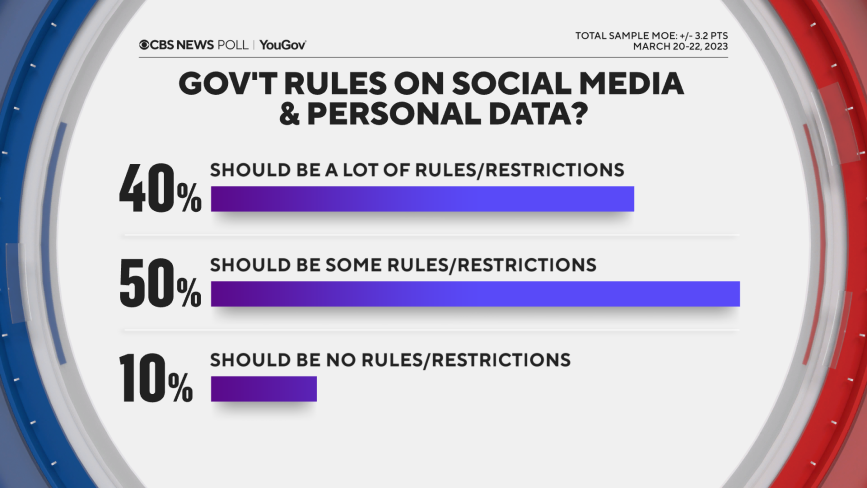
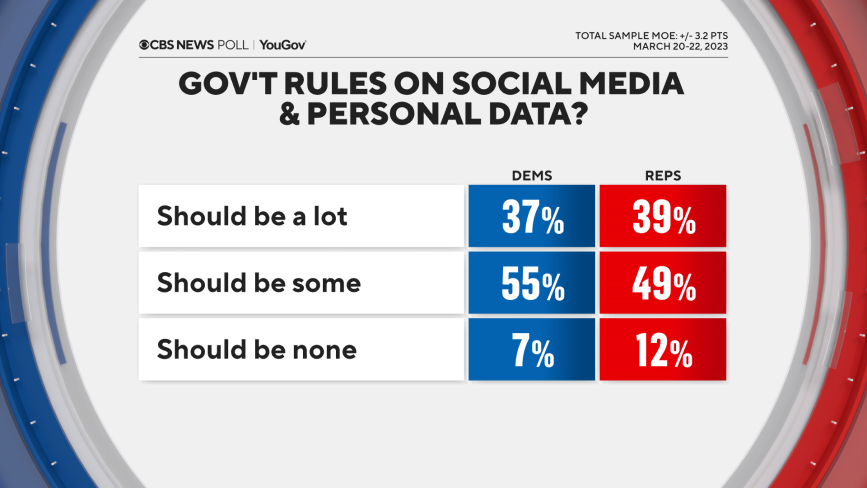

Discussion about this post